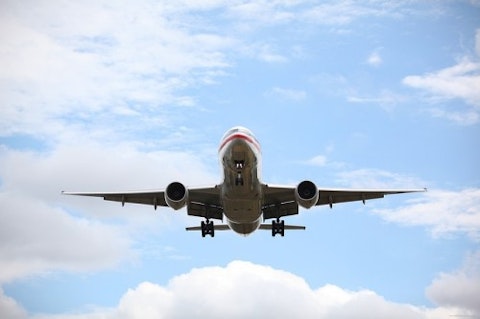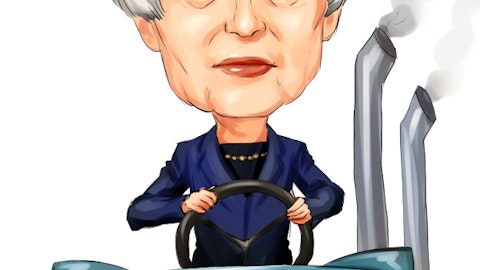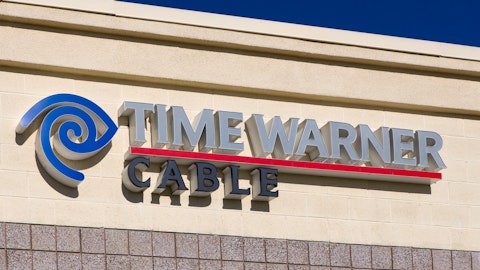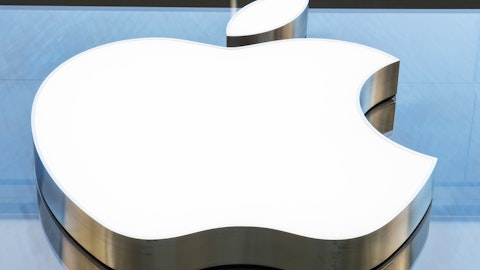In a surprising announcement from the Justice Department, the government agency is ready to investigate a possible collusion between airlines to slow down their growth, hence keeping airfares and margins higher. The government is requesting information from various airline groups and United Continental Holdings Inc (NYSE:UAL)’s United Airlines is the first of the airliners to have announced the receipt of a government letter. According to a spokeswoman from the Justice Department, Emily Pierce, the department is conducting an antitrust investigation to find any “unlawful coordination” among airline companies. Apart from the current investigation, it is important to consider that American Airlines Group Inc (NASDAQ:AAL), Delta Air Lines, Inc. (NYSE:DAL), United Continental Holdings Inc (NYSE:UAL), and Southwest Airlines Co (NYSE:LUV), the shares of which were all battered in trading late Wednesday following the revelation, together account for 80% of the seats in the U.S. airline industry. Each of these airlines has agreed to comply with the Department’s request, although it is not clear which of these airlines is under investigation.

The shares of each of these airlines fell after the announcement, including a 3.37% drop in the shares of JetBlue Airways Corporation (NASDAQ:JBLU), a 1.95% drop for Delta Air Lines, Inc. (NYSE:DAL), a 2.43% drop for United Continental Holdings Inc (NYSE:UAL), and a 1.42% decline in the share price of Southwest Airlines Co (NYSE:LUV). United Continental Holdings Inc (NYSE:UAL)’s shares have already endured a rough year, having dropped by 21.74% year-to-date, but the hedge funds tracked at Insider Monkey have maintained a bullish outlook on the company. 78 hedge fund managers were invested in the holding company on March 31, with aggregate investments of $3.92 billion against previous quarter investments of $3.73 billion made by 79 hedge fund managers. GMT Capital, managed by Thomas E. Claugus was among the primary shareholders of the company, opening a new position worth $474.37 million of 7.05 million shares in the first quarter. A similar trend was witnessed in Southwest Airlines Co (NYSE:LUV), which received net investments of $2.07 billion from 44 hedge fund managers against prior quarter’s total investments of $1.93 billion from an equal number of investors. John Armitage‘s Egerton Capital Limited held 19.38 million shares of the airliner at the end of the first quarter, valued at $858.69 million.
Follow John Armitage's Egerton Capital Limited
However, we don’t just track the latest moves of funds. We are, in fact, more interested in their 13F filings, which we use to determine the top 15 small-cap stocks held by the funds we track. We gather and share this information based on 16 years of research, with backtests for the period between 1999 and 2012 and forward testing for the last 2.5 years. The results of our analysis show that these 15 most popular small-cap picks have a great potential to outperform the market, beating the S&P 500 Total Return Index by nearly one percentage point per month in backtests. Moreover, since the beginning of forward testing in August 2012, the strategy worked brilliantly, outperforming the market every year and returning 135%, which is more than 80 percentage points higher than the returns of the S&P 500 ETF (SPY) (see more details).
The investigation has received mixed responses from various groups, and analysts are considering it an investigation without any merit. According to the data compiled by Bloomberg, the average domestic fares were down by 4.9% in May and the competition among airlines has heated up at Dallas, Chicago, and Seattle’s airports, as mentioned by Helane Becker of Cowen & Co. Major airline groups like Airlines for America have come forward after the announcement in defense of the industry, with the aforementioned group releasing a statement saying, “We are confident that the Justice Department will find what we know to be true: our members compete vigorously every day, and the traveling public has been the beneficiary.”
On the other hand, the Bureau of Transportation Statistics released figures indicating that average domestic fare has grown by 13% between 2009 and 2014, after adjusting for inflation. In addition to the fares, airlines have introduced several new fees, which lead to a collection of $3.6 billion in bag fees and $3 billion in reservation change fees over the last 12 months. Further, the airlines reported 84.5% of seats filled on domestic flights during the last year. Institutions like the American Antitrust Institute are supporting the decision, with Diana Moss, Vice President of the American Antitrust Institute saying “For the benefit of the American consumer and competition, this is an important move that the DOJ is making.”
In general, higher seat bookings and limited growth in airline seats is a strategy supported by investors, as it allows airlines like JetBlue Airways Corporation (NASDAQ:JBLU) and Delta Air Lines, Inc. (NYSE:DAL) to avoid oversupplying the market with seats and maintain higher profit margins.
Disclosure: None




